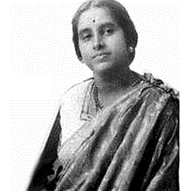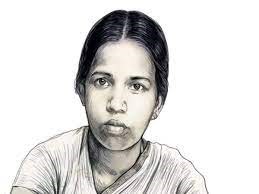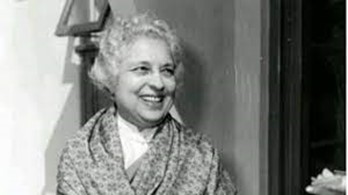PREVIOUS
Women Leaders in Constituent Assembly of India – PART 1
May 25 , 2023
683 days
14203
0
(இதன் தமிழ் வடிவத்திற்கு இங்கே சொடுக்கவும்)
- A constitutional assembly is a body or assembly of popularly elected representatives.
- The Constituent Assembly of India consisting of indirectly elected representatives.
- In December 1946, a new constituent assembly having 389 representatives (later 299) including 12 women (later 15) were formed.
- It was established to draft a constitution for India.
- The women members of the Constituent Assembly were Ammu Swaminathan, Dakshayani Velayudhan, Begum Aizaz Rasul, Durgabai Deshmukh, Hansa Mehta, Kamla Chaudhary, Leela Roy, Malati Choudhury, Purnima Banerjee, Rajkumari Amrit Kaur, Renuka Ray, Sarojini Naidu, Sucheta Kriplani, Vijaya Lakshmi Pandit and Annie Mascarene.
1. Ammu Swaminathan
- Ammu Swaminathan or A. V. Ammakuti was an Indian social worker and political activist during the Indian independence movement and a member of the Constituent Assembly of India.
- Ammu Swaminathan was born on 22nd April 1894.
- Ammukutty Swaminadhan was born into the Vadakkath family of Anakkara in Ponnani taluk, Kerala.
- Her father Govinda Menon was a minor local official.
- Both of Ammu's parents belonged to the Nair caste.
- She was the youngest of their thirteen children, which included nine daughters.
- Ammu never went to school and received only a rudimentary education at home, which consisted of minimal reading and writing in Malayalam, cooking and keeping house, to prepare her for married life.
- She lost her father at a very young age.
- Resultantly, when Ammu was 13, her mother arranged an alliance for her which conformed to the Sambandam system which was well accepted in Kerala society at that time.
- Her spouse was Subbarama Swaminathan, an Kerala Iyer Brahmin who was more than twenty years older than Ammu.
- Ammu's life is changed by her husband's partner.
- Swaminathan encouraged his wife's talents.
- He hired tutors to teach her English and other subjects at home.
- Later, Ammu became a follower of Mahatma Gandhi and participated in India's freedom struggle.
- In 1936, she travelled across India to campaign for the Indian National Congress.
- In 1920, she was arrested for his participation in the White Quit Movement.
- After independence, she served as a member of the Constituent Assembly of India.
- In 1952, Ammu Swaminadhan was elected a member of the Rajya Sabha from the Madras State.
- She became an activist of the Madras Women's Association, India's first women's organization.
- She was associated with several cultural and social organizations.
- She served as President of the Bharat Scouts and Guides from November 1960 to March 1965.
- She was also selected as 'Mother of The Year' in 1975 on the inauguration of International Women's Year.
- Ammu Swaminathan died on 4th July 1978.

2.Dakshayani Velayudhan
- Dakshayani Velayudhan was an Indian politician and leader of the oppressed classes.
- Dakshayani Velayudhan was born on 4th July 1912.
- Belonging to the Pulayar community, she was among the first generation of people to be educated from the community.
- Dakshayani was born in the Mulavukad village of the Kanayannur taluka of Ernakulam district in 1912.
- She completed her B.A. in 1935
- She went on to complete her teachers' training course from the Madras University three years later.
- Her studies were supported by a scholarship from the government of the Cochin State.
- From 1935 to 1945, she worked as a teacher at the Government High Schools in Trichur and Tripunithura.
- She was first woman from her community. wear an upper cloth, the first Scheduled Caste woman graduate in India, a science graduate, a member of the Cochin Legislative Council and of being one of nine female members of the Constituent Assembly of India.
- But it is not correct to mention that she was one of the first women from her community to wear an upper cloth.
- Her elder sister and her mother Thayyithara Maani may be given this credit prior to her.
- Mother Maani lived up to the post independent period in India and died in 1959.
- In 1945, Dakshayani was nominated to the Cochin Legislative Council by the government of the State.
- Velayudhan was elected to the Constituent Assembly of India by the Council in 1946.
- She was the first and only Scheduled Caste woman to be elected to the constituent assembly.
- From 1946-1952 she served as a member of the Constituent Assembly and the Provisional Parliament of India.
- In Parliament she took special interest in the matters of education especially that of the Scheduled Castes.
- Honouring Dakshayani Velayudhan, the first and only Dalit woman MLA, the Kerala government has constituted the ‘Dakshayani Velayudhan Award’.
- It will be given to women who contributed in empowering other women in the state.
- The budget earmarked Rs 2 crore for the award.
- Dakshayani Velayudhan died on 20th July 1978.

3. Begum Aijaz Rasul
- Begum Aijaz Rasul was the only Muslim woman in the Constituent Assembly of India that drafted the Constitution of India.
- Begum Rasool was born on 2 April 1909 as Qudsia Begum, daughter of Sir Zulfiqar Ali Khan and his wife Mahmuda Sultana.
- Her father Sir Zulfiqar belonged to a collateral branch of the ruling family of Malerkotla princely state in Punjab.
- Her mother Mahmuda Sultan was the daughter of Nawab Allauddin Ahmed Khan, Nawab of Loharu.
- In 1929, Qudsia was married Nawab Aijaz Rasul.
- In the 1937 elections, she was one of the few women who successfully contested from a non-reserved seat and was elected to the U.P legislative assembly.
- Begum Aijaz Rasul remained a member until 1952.
- She held the office of the Deputy President of the council from 1937 to 1940.
- She acted as the Leader of Opposition in the council from 1950 to 1952–54.
- She was the first woman in India and the first Muslim woman in the world to reach this position.
- Despite her family background, she was known for her strong support for zamindari abolition.
- She also strongly opposed the demand for separate electorates based on religion.
- In 1946, she was elected to the Constituent Assembly of India and was one of 28 Muslim League members who finally joined.
- She was the only Muslim woman in the Assembly.
- In 1950, the Muslim League in India dissolved and Begum Aijaz Rasul joined the Congress.
- She was elected to the Rajya Sabha in 1952-54 and was a member of the Uttar Pradesh Legislative Assembly from 1969 to 1989.
- Between 1969 and 1971 she was the Minister for Social Welfare and Minorities.
- In 2000, she was awarded a Padma Bhushan for her contribution to social work.
- She held the office of President of the Indian Women Hockey Federation for 20 years
- She was also President of the Asian Women's Hockey Federation.
- She died on 1st August 2001.

-------------------------------------
Leave a Reply
Your Comment is awaiting moderation.


